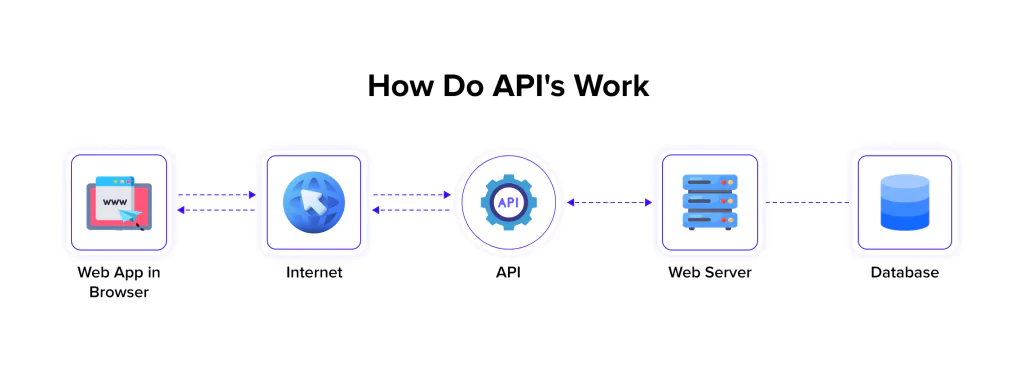Agencia 92: Your Source for Trending News
Stay updated with the latest insights and stories that matter.
APIs: The Matchmakers of the Digital World
Discover how APIs connect and transform the digital landscape, turning chaos into seamless experiences. Unlock the future of tech today!
Understanding APIs: How They Connect the Digital Landscape
Application Programming Interfaces, or APIs, serve as the vital conduits that facilitate communication between different software applications. In our increasingly connected digital landscape, APIs enable various systems to interact seamlessly, allowing for the exchange of data and functionalities. Imagine a restaurant where the menu serves as the API; it provides a list of available dishes (data) that the customer can order (functionality). Similarly, APIs function as intermediaries, delineating how different software components should interact and ensuring they can work harmoniously within the broader ecosystem.
Understanding the role of APIs is crucial for anyone looking to grasp the inner workings of modern technology. With the growing reliance on cloud services, mobile applications, and web platforms, the demand for effective API solutions has never been higher. Key benefits of incorporating APIs into digital projects include:
- Efficiency: Streamlines development by allowing developers to leverage existing functionalities.
- Scalability: Simplifies the process of scaling applications by integrating new services easily.
- Innovation: Encourages creativity by enabling developers to build on top of existing platforms.
By fostering connections across various digital services, APIs play a pivotal role in enhancing user experiences and driving technological advancement.

The Role of APIs in Modern Software Development
In today's rapidly evolving digital landscape, APIs play a crucial role in modern software development. They serve as the building blocks that facilitate communication between different software applications, enabling developers to leverage the functionalities of existing services and create more robust solutions. With the increasing demand for interoperability and seamless integration between systems, APIs have become essential for organizations to innovate quickly and efficiently.
Moreover, the use of APIs allows developers to focus on their core functionalities rather than reinventing the wheel. By integrating external services, they can streamline workflows and enhance user experiences without the need for extensive coding from scratch. For example, APIs can be utilized for payment processing, data storage, and social media connectivity, thereby reducing development time and accelerating the delivery of products to market. As a result, the role of APIs in modern software development cannot be overstated, as they enable agility and foster a culture of innovation.
APIs vs. Traditional Software Integration: Which Is Right for Your Project?
In the ever-evolving landscape of software development, the debate between APIs and traditional software integration methods continues to gain momentum. APIs (Application Programming Interfaces) are designed to facilitate interactions between different software applications, enabling them to share data and functionalities seamlessly. This modern approach offers several advantages, such as improved flexibility, faster deployment times, and easier scalability. On the other hand, traditional integration methods may involve more complex programming and can be time-consuming, leading to longer development cycles. Understanding these differences is crucial when determining which approach best fits your project's needs.
When considering the best option for your project, it's important to assess several factors:
- Project Scope: APIs are often more suitable for projects that require rapid development and continuous updates.
- Budget Constraints: Traditional integration can incur higher costs due to extensive coding and testing.
- Technical Expertise: Choose the approach that aligns with your team's skill set for optimal results.